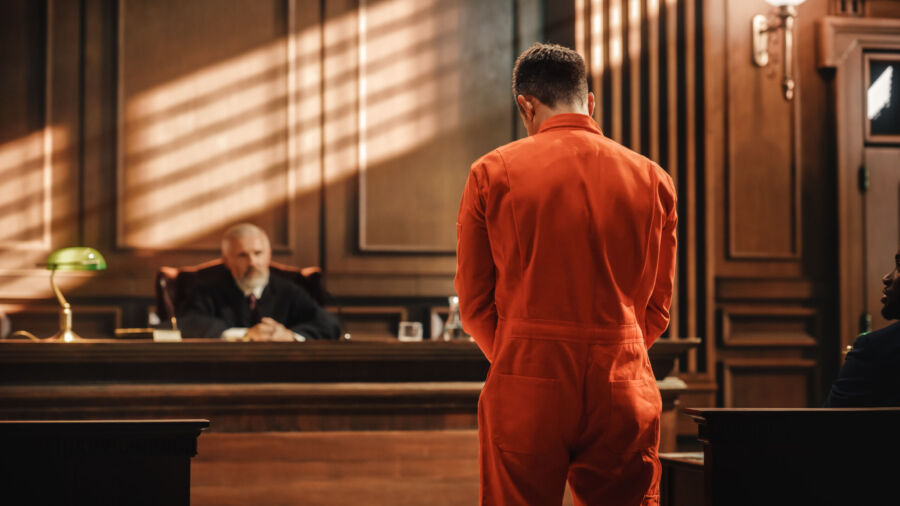🧭 When Admitting Guilt Isn’t an Option
This guide will help you understand plea options that might apply to keep you from admitting guilt when charged with a crime: the Alford plea and Norgaard plea. Each offers a strategic way to resolve a case—even when you can’t (or won’t) admit guilt.
Facing a criminal charge in Minnesota can feel like you’re staring down a storm without a compass—uncertain, overwhelming, and filled with risk. But what if you want to resolve your case without admitting you did something wrong?
You’re not alone. Many people find themselves saying:
“I just want this over with… but I can’t say I did it.”
⚖️ What Are Alford Pleas and Norgaard Pleas?
These pleas are legal tools that can resolve criminal charges in Minnesota under specific circumstances.
🔹 Alford Plea
“I didn’t commit the crime—but I recognize the risks of going to trial.”
In an Alford plea, you maintain your innocence but agree that the State likely has enough evidence to convict you beyond a reasonable doubt. The court enters a guilty plea, but you never actually say the words, “I did it.”
This type of plea comes from North Carolina v. Alford, 400 U.S. 25 (1970), and is accepted in Minnesota courts in rare cases where the facts justify it.
🔹 Norgaard Plea
“I don’t remember, but I believe the State could prove its case.”
Named after State v. Norgaard, 272 Minn. 48 (1965), this plea is used when a defendant does not remember the event—often due to intoxication, trauma, or mental health—but doesn’t dispute that the State’s evidence would likely support a conviction.
Unlike an Alford plea, a Norgaard plea acknowledges the possibility of guilt based on the evidence, not on personal recollection.
🔹 No-Contest Plea (Nolo Contendere)
The Minnesota Rules of Criminal Procedure recognize only the following plea options:
Guilty
Not guilty
Not guilty by reason of mental illness or cognitive impairment
Double jeopardy or prosecution barred by Minn. Stat. § 609.035
No-Contest is not a plea option in Minnesota
🔍 Common Scenarios Where These Pleas Are Used
Domestic Violence Allegations: Clients often face high emotional and reputational stakes, even when evidence is in dispute.
Sex Crime Charges: Avoiding public admissions of guilt may carry personal significance.
Mental Health or Memory Issues: Norgaard pleas allow resolution when the accused doesn’t recall the incident.
Protecting Employment or Licensing: Some clients use these pleas to resolve a case quickly while preparing for civil or professional consequences.
Cases with Serious Trial Risk: When the State’s evidence is strong—even if disputed—these pleas can offer a strategic resolution.
🧾 What to Expect in Court
If you pursue one of these pleas, the judge will conduct a detailed on-the-record colloquy to confirm that:
You’ve reviewed the evidence and understand what the State would present.
You are knowingly waiving your right to a trial.
You’re making the plea voluntarily to take advantage of a negotiated resolution.
⚖️
Important: The judge must find a factual basis and ensure that both sides agree the plea is appropriate. These are not shortcuts—they require precision and strategy.
🔐 Strategic Defense Options and Why Representation Matters
A conviction from any of these pleas still has consequences:
Criminal record
Immigration risk
Licensing and employment problems
Future sentencing enhancements
That’s why you need a strategic advocate.
We help you:
Analyze plea options
Negotiate terms
Prepare for court
Plan for long-term impact
📌 Related Services:
Criminal Defense in Minnesota
Sex Crimes Defense
Probation Violation Help
Frequently Asked Questions about Alford / Norgaard Pleas
Will I have a criminal record after an Alford plea?
Yes, these pleas result in a conviction.
Are these options available in all cases?
No, they are rare and require agreement from the prosecutor and court.
Is a Norgaard plea the same as a guilty plea?
Legally, yes—but it may help in civil liability situations.
Can I later expunge the conviction?
Possibly. Eligibility depends on the charge and your record.
Do I need a lawyer for Alford pleas?
Need? No. Should you? Absolutely. These pleas are complex and require strategic guidance and negotiations.
🧭 Navigating the Path Forward
At Rob Doar Law, we know that legal uncertainty is real—but you don’t have to navigate it alone.
Let us help you find your bearings, explore your legal options, and chart a path forward with confidence. We’re here to anchor your strategy when the legal waters get rough.



